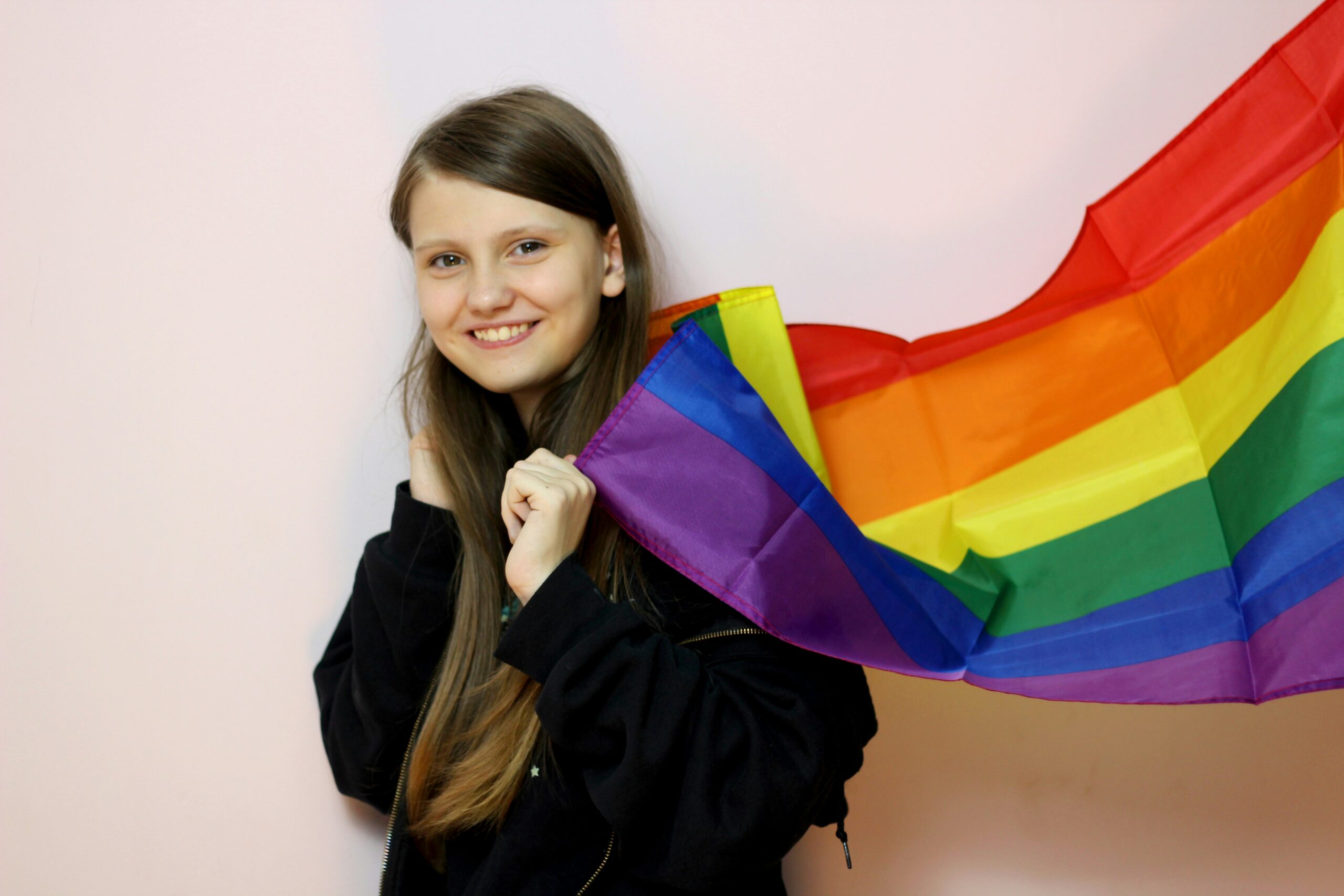LGBTQ+ young people in the UK are at the sharp end of the crisis in children’s wellbeing. If you’re gay, lesbian, bi, trans, queer, intersex, or questioning your identity, survey data suggests you face significantly higher risks to your mental health than your non-LGBTQ+ peers. This is closely linked to the discrimination and exclusion many LGBTQ+ young people face: they are twice as likely to be bullied at school, often for simply being themselves. In 2023, an estimated 825,000 young people aged 16 to 24 in the UK – approximately 12% of that age group – identified as gay, lesbian, bisexual or another non-heterosexuality.
According to survey findings, the mental health impact on LGBTQ+ youth is stark: between 58% and 68% report having had suicidal thoughts, up to one in five say they have attempted suicide, and 60–70% report symptoms of depression, anxiety or self-harm. While based on survey data, these findings offer a powerful insight into the everyday realities of LGBTQ+ youth and point to a clear and urgent challenge for health, education and social policy. This pattern is also reflected in earlier national data. In 2017, NHS England found that 35% of young people aged 14 to 19, who identified as LGBTQ+, had a mental health condition, compared to 13% of their heterosexual peers.
There are multiple, overlapping drivers of this crisis. LGBTQ+ young people often face stigma, discrimination and misunderstanding in school, at home, and across wider society. Many of them experience family rejection, social exclusion, and barriers to expressing and affirming their identity. These challenges are often sustained and cumulative, with profound effects on a young person’s ability to feel safe, supported, and valued.
But the impact is not limited to individuals. When these challenges are left unaddressed, they have far-reaching consequences undermining young people’s education, employment prospects and long-term participation in the economy and society. Mental health difficulties in adolescence are also associated with substantial costs to public services. They have been estimated at around £2,329 (in 2025 prices) per young person per year, with over half of this cost falling on the education sector.
At the same time, many LGBTQ+ young people find themselves excluded from mainstream mental health services that are not designed with their needs in mind. Long waiting lists, a lack of care tailored to, and focused, on their specific needs, and limited training on LGBTQ+ issues mean that support is often delayed, inappropriate, or inaccessible. These gaps not only limit the impact of existing services but also risk reinforcing the very inequalities they aim to address.
There is still limited understanding of what works, and what does not, when supporting LGBTQ+ young people’s mental health. While the problem is increasingly acknowledged, the evidence base around effective interventions remains limited.
Our report builds the evidence on the impact of effective support for young people. We evaluate the economic impact of Free2B’s one-to-one mentoring model for LGBTQ+ young people, who often face difficulties accessing appropriate support through mainstream mental health services. The Free2Talk programme, developed by Free2B, is a targeted mentoring initiative designed specifically to support LGBTQ+ young people. It provides a safe, identity-affirming space in which young people can engage with trusted adults to explore challenges related to their mental health, identity, and wellbeing. Since its launch in 2016, the programme has supported 289 young people, offering weekly or fortnightly sessions that focus on building resilience, confidence and support networks, while addressing issues such as bullying, family rejection, and barriers to inclusive education or employment.
Our analysis builds on a previous study conducted by The University of Manchester using data from the #BeeWell programme. Among the young people for whom suitable comparisons could be made, those who took part in the Free2Talk programme appeared to experience wellbeing improvements equivalent to a 0.96-point increase in life satisfaction on a 0–10 scale, around 1.3 times greater than the average gain associated with moving from depression to full mental health.
We find that these wellbeing improvements have a significant economic value to society. Based on HM Treasury’s (HMT’s) methodology for valuing wellbeing, if the gains are sustained for a year, each young person supported through the Free2Talk programme in 2023/24 would benefit from improvements in wellbeing worth, approximately, £15,600. Focusing just on those young people that engaged with the programme for more than nine months, we find that the Free2B programme delivered around £71,000 in wellbeing benefits in 2023/24, for a cost of £17,900 in the same period. This suggests that, even when considering the short-term wellbeing impacts for a sub-group of those supported by the programme, the Free2Talk programme is likely to offer excellent value for money, delivering an estimated £4 in benefits for every £1 spent. If all participants experienced similar benefits (even if they engaged for less than nine months) the total benefits could be as high as £407,000 per year.
These initial findings highlight the urgent need for tailored support for young people facing the greatest risks to their mental health and wellbeing. For LGBTQ+ young people, programmes such as Free2Talk provide more than just practical help; they offer affirmation, belonging and a safe space to be understood. The results also reinforce the vital role that trusted, community-based organisations such as Free2B play in delivering this support. These organisations are uniquely placed to reflect the lived experiences of the young people they serve. Ensuring equitable access to such services must be a priority for policymakers committed to addressing the widening gaps in youth wellbeing.

